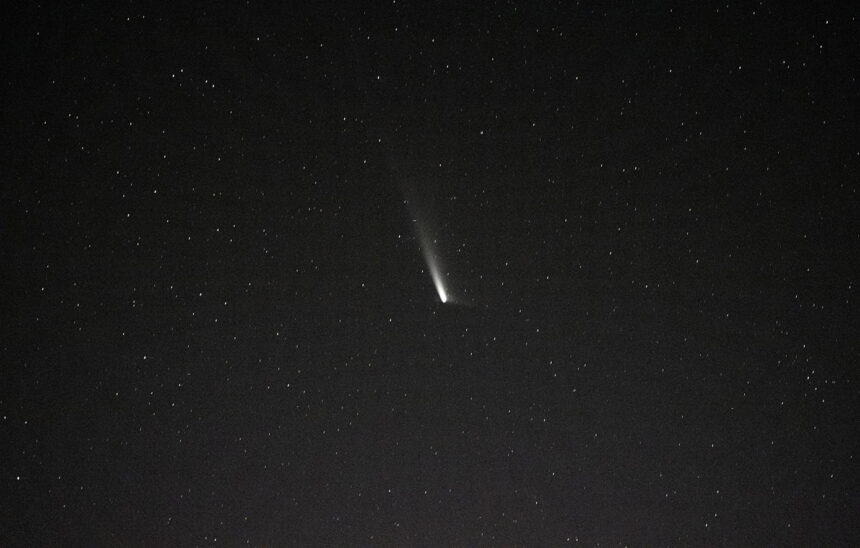The last time it was seen from Earth was when Neanderthals walked the planet
Comet A3 (Tsuchinshan-ATLAS) has been characterized in recent days as “the comet of the century” about how bright it is and how easily it can be seen from Earth. Although this designation is disputed by scientists, it is sure to be a very impressive comet, and sky watchers should be able to spot it in the coming weeks.
The comet originates in the Oort Cloud, a giant spherical shell that surrounds our solar system and is home to billions of objects, including comets.
The comet was discovered in January 2023 and was named after the two telescopes that spotted it, almost simultaneously, the Chuxinshan Observatory in China and the ATLAS telescope in South Africa. It visits the inner solar system approximately every 80,000 years and as the Royal Astronomical Society of Britain typically reports, “this means it would have been last visible from Earth when Neanderthals walked the planet.”
On September 27, 2024, comet A3 reached its perihelion, i.e. the closest point to the Sun, at a distance of 58 million kilometers. On October 12, it is expected to make its closest pass by Earth, at a distance of about 70 million kilometers.
In the Northern Hemisphere there will be two opportunities for people to see the comet, perhaps with the naked eye or even more likely with binoculars. Until tomorrow it will be visible in the east just before sunrise and then again between October 12-30, so there will be a better chance of seeing it if we look west just after sunset.
However, dr. Robert Massey, deputy executive director at the Royal Astronomical Society, reckons in an explanatory video he prepared that it won’t be very easy to see, so it won’t be “the comet of the century” after all.
However, two days ago, astronauts of the International Space Station managed to take impressive photos of the comet, which they have posted on social media.








